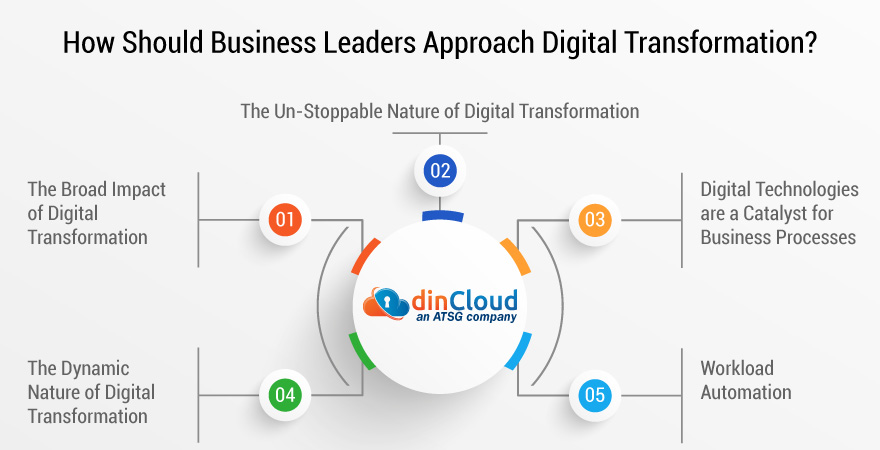Right now, the sheer pace of change is mind boggling. Businesses are not immune from these rapid changes, rather a changing environment always challenges businesses to adapt, or face extinction in a matter of just a few months or years.
In this post, we will be focusing on digital transformation from the standpoint of business leaders. It is even more important for them to have a deep understanding of digital transformation, being in leading roles within the organization.

Related: Stages of Digital Transformation
Well informed business leaders will then truly be able to become agents of change, and the benefits of digitalization will trickle down to all the different tiers of the organization. Now, digital transformation is more of a necessity, rather than a choice.
The Broad Impact of Digital Transformation
When we look at the current penetration level of digital technologies in our lives, we will find that they are touching nearly every aspect of our lives. Digital technologies are shaping and re-defining how we work, communicate and do other stuff in our lives.
Let us discuss some core elements that every business leader should not only keep in mind about digital transformation, but also ensure everyone around them also understands them in true letter and spirit.
Related: 3 Reasons to Embrace Digital Transformation
The Un-Stoppable Nature of Digital Transformation
Not only are digital technologies in a state of rapid evolution, they are also re-defining the business processes that employ them. To better illustrate this point, take the example of Enterprise Resource Planning (ERP) software.
There was a time, not long ago, when having an ERP was a matter of personal preference for a business leader. This has now changed over the past years, as an ERP has become the cornerstone of streamlining the various business processes and workflows.
As a business leader, accepting and fully assimilating the fact that digital transformation is something un-stoppable will be the first step in the right direction. With this out of the way, a business leader will be able to focus on the core aspects of digital transformation.
Digital Technologies are a Catalyst for Business Processes
When an organization has successfully deployed and implemented digital technologies, they will have a catalytic impact on business processes. This puts business leaders and organizations with sound digital technologies at a major competitive edge.
An enterprise which is ahead of the competition in the digital transformation curve will have a natural advantage when it comes to designing new products or services, or even improving the existing ones.
Related: What are the benefits of Digital Transformation?
According to a report by Harvard Business Review, the average lifespan of a Fortune 500 company was 75 years in the 1970s. With the proliferation of digital technologies, the same timespan has now been reduced to just 15 years.
The Dynamic Nature of Digital Transformation
Most business leaders might find the 15 year lifespan of an organization as too short. Well, this is the very nature of digital technologies, as they are so dynamic that even a small technology start-up can threaten the existence of a much bigger tech company.
Right now, business leaders need to understand that the current business environment is no more competitive, rather it is now disruptive in nature. Digital transformation initiatives provide better “immunity” to enterprises against this disruptive business environment.
The role of business leaders does not end at just making an enterprise thrive in the present day. Instead, business leaders need to harness the power of digital transformation into constant innovation, with the consumer as the prime focus.
Related: The Digital Transformation Challenges of the “New Normal”
Workload Automation
Lastly, business leaders also need to realize that repetitive tasks consume the lion’s share of the productivity hours of an employee. It is very important to leverage digital technologies to achieve and implement automation of such repetitive workloads.
This will have a two-fold benefit of not only streamlining business processes, but will also free up the time of your employees. This in turn will enable employees to channelize this time and energy into process as well as business innovation.
Conclusion
To reap the true benefits of Digital Transformation, business leaders will have to understand the true potential of this change. The success of digital transformation will also hinge around effecting a change in the organizational culture.
As a business, if you are on the lookout for achieving a speedy digital transformation, then dinCloud’s solutions could well be the perfect fit for you.


